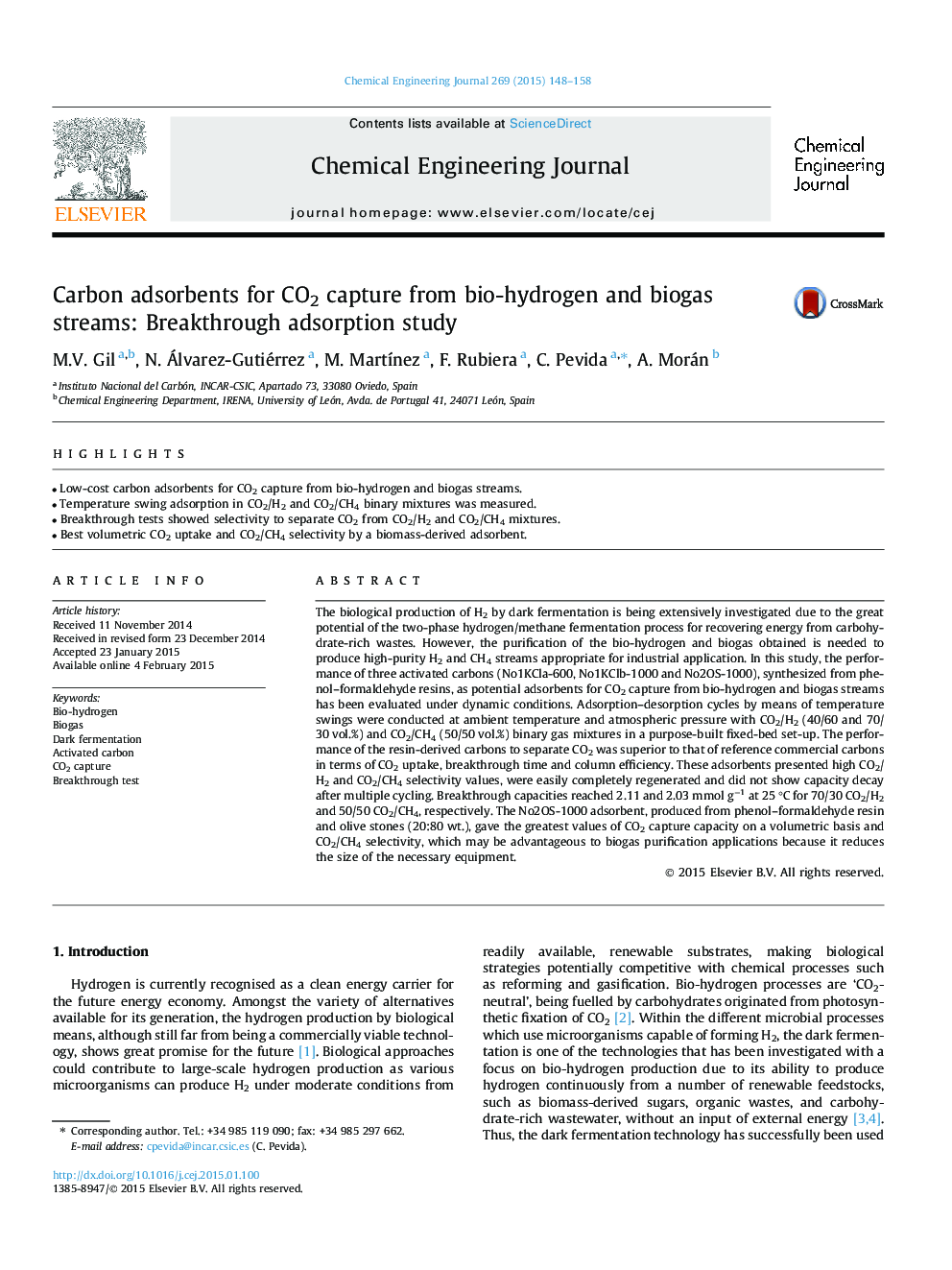| کد مقاله | کد نشریه | سال انتشار | مقاله انگلیسی | نسخه تمام متن |
|---|---|---|---|---|
| 146516 | 456372 | 2015 | 11 صفحه PDF | دانلود رایگان |

• Low-cost carbon adsorbents for CO2 capture from bio-hydrogen and biogas streams.
• Temperature swing adsorption in CO2/H2 and CO2/CH4 binary mixtures was measured.
• Breakthrough tests showed selectivity to separate CO2 from CO2/H2 and CO2/CH4 mixtures.
• Best volumetric CO2 uptake and CO2/CH4 selectivity by a biomass-derived adsorbent.
The biological production of H2 by dark fermentation is being extensively investigated due to the great potential of the two-phase hydrogen/methane fermentation process for recovering energy from carbohydrate-rich wastes. However, the purification of the bio-hydrogen and biogas obtained is needed to produce high-purity H2 and CH4 streams appropriate for industrial application. In this study, the performance of three activated carbons (No1KCla-600, No1KClb-1000 and No2OS-1000), synthesized from phenol–formaldehyde resins, as potential adsorbents for CO2 capture from bio-hydrogen and biogas streams has been evaluated under dynamic conditions. Adsorption–desorption cycles by means of temperature swings were conducted at ambient temperature and atmospheric pressure with CO2/H2 (40/60 and 70/30 vol.%) and CO2/CH4 (50/50 vol.%) binary gas mixtures in a purpose-built fixed-bed set-up. The performance of the resin-derived carbons to separate CO2 was superior to that of reference commercial carbons in terms of CO2 uptake, breakthrough time and column efficiency. These adsorbents presented high CO2/H2 and CO2/CH4 selectivity values, were easily completely regenerated and did not show capacity decay after multiple cycling. Breakthrough capacities reached 2.11 and 2.03 mmol g−1 at 25 °C for 70/30 CO2/H2 and 50/50 CO2/CH4, respectively. The No2OS-1000 adsorbent, produced from phenol–formaldehyde resin and olive stones (20:80 wt.), gave the greatest values of CO2 capture capacity on a volumetric basis and CO2/CH4 selectivity, which may be advantageous to biogas purification applications because it reduces the size of the necessary equipment.
Journal: Chemical Engineering Journal - Volume 269, 1 June 2015, Pages 148–158